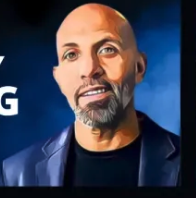![]()
By Peter Oliva
In 1831, 66 years before Edmond Rostand created the Gascon character Cyrano de Bergerac, a little-known German correspondent was writing a series of letters home to his newspaper, the Augsburger Allgemeine. His name was Heinrich Heine and he was in Paris.
“France,” wrote Heine, “is the Gascon of Europe.”
As the world would soon learn, through the likes of The Three Musketeers (1844), and Rostand’s Cyrano de Bergerac, Gascons are recklessly brave, boastful, irresistible to women, “free fighters, free lovers, free spenders, defenders of old homes, old names, and old splendors . . . bragging of crests and pedigrees” (Rostand).
It seems little has changed in the past 100 years.
The French, according to a new book by Jean Benoît Nadeau and Julie Barlow, are still tied to Gascon ideals. They love the idea of an elite. They appreciate “grandeur, privilege and incendiary oratory.” You might call them a nation-state of musketeers, because they have always disdained compromise and are still “willing to fight to the end, no matter what the costs, even if it means losing everything.”
Of course, this sort of information could be helpful in your French travels. If you are with a Frenchman, you will find that he (or she) is seldom (if ever) co-operative. As Nadeau and Barlow write: a French conversation “is about scoring points and proving you have something interesting to say.” It is not necessarily what you say, but how you say it.
But wait. Before you interrupt me, there’s more news from Nadeau and Barlow: If you are lucky enough to be French — from France that is — then you already have an interest in language and this sort of argumentative wit. You can handle yourself. So relax. (If you are like me, let your whiskers grow a little so you can begin to look the part.) Nadeau and Barlow will help you get through this labyrinth and you will make sense of all of the paradoxes in the French heart, mind and soul.
If you are French, then you know that it is possible to be both elite and tied to the land. You love foie gras, but you can also carve a banana with a knife and fork. You know how to handle a squirming sheep at a French farm show and that there are 246 kinds of cheese. You value privacy, but you know that eating is a public act so you seldom snack between meals. (Hey, you’re thinner for this news and you’ll live longer than North Americans, so smile a little.)
Out on the street, you can sidestep the doggy poopée, because you pay high taxes and the state will certainly look after this sort of thing. Mon dieu, don’t bother picking it up. . . . Think of Napoleon: He may have codified the law, but he would never send his officers to enforce a dog-dirt policy. Sartre refused to pick up his Nobel Prize, so you have to know that he’d never stoop for Fluffy. These are your new mentors. You’re strong and civilized and you dislike humility and the talk of money. You know that a business is an extension of owner’s home, so you have the good manners to greet shopkeepers coming and going.
Bonjour Monsieur! Au revoir Madame!
Holidays, good meals, theatre tickets: These aren’t luxuries; they’re your basic rights . . . all this because you are French. You are the light of the world! You are, as they say in Germany, Leben wie Gott in Frankreich (Living like a God in France). And even your language is a work of art.
These are just a few of the loufouque (intelligently crazy) details in Nadeau and Barlow’s wonderful book, Sixty Million Frenchmen Can’t Be Wrong.
The two Montreal writers travelled to France in 1999, and it was their ambition to explain why the French are 1: so darn French and 2: so good at it. Nadeau and Barlow looked at the country as if they were two anthropologists, visiting from Mars or from some distant age. And the result is, I am thrilled to say, simply marvellous. My only complaint might be that they should have written this book years ago, because so many of us (who are mystified anglophones) would have benefited from reading it.
The title of the book is borrowed from a Cole Porter musical — Fifty Million Frenchmen — and seems to be updated to reflect France’s current population. Like most things that provoke a response in France, even this gender-bent statistic is not meant to be taken literally. Nadeau and Barlow explain: “[The title] merely reflects our sympathy, and our goal to challenge assumptions about France. It is easy to pass judgment on the French, but much harder to examine them in their own terms and on their own turf.”
Their book is fascinating, particularly because Nadeau and Barlow have done the historical research to explain their every observation, no matter how small the detail. They admit, from the start, that “we did not move to France to renovate a house in Provence. What we are trying to do is renovate some ideas.” The result? Sixty Million Frenchmen is weighty and engaging because of this historical background. It will interest those readers who want to understand what makes the French mind go tickety-tock. And it will definitely help smooth anyone’s introduction to this puzzling and beautiful country.
Nadeau, early in his sabbatical, made the good decision to join a hiking club in Paris where he met all sorts of people, from all “walks” of life. These meetings gave him countless vignettes to draw upon. Barlow, in her roaming travels to Holland and Mexico, looked at France with the benefit of a keen traveller’s eye. Happily, their collaboration does not mean their book has two different voices; instead, it gains a wider scope in which to view France and its people.
Like the French tax collectors who peeked through the windows four centuries ago, this book illuminates the French and opens the shutters on hundreds of assumptions and cultural differences. A welcome book.








